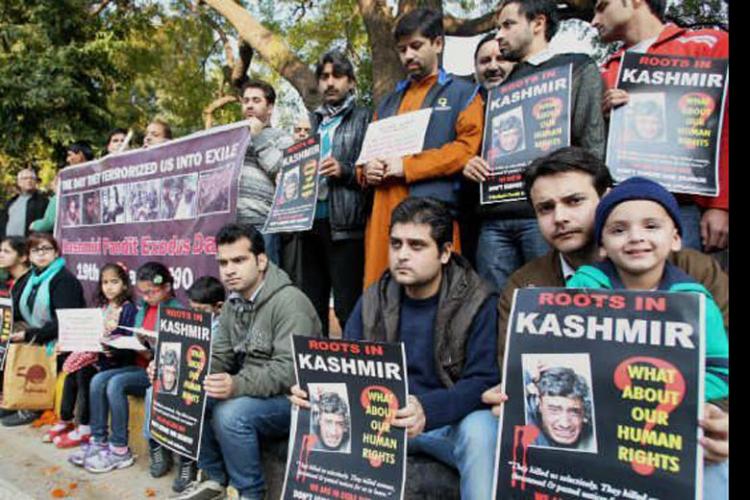On Wednesday, January 23, on the eve of the 29th year of the displacement of Kashmiri Pandits from Jammu & Kashmir, United Kingdom (UK) parliament passed an Early Day Motion (EDM), in condolences to the families and friends of all those who were killed, raped and injured in the massacre.
Expressing deep grief regarding the mass killing, the UK Parliament condemned the Islamic militant for the cross-border attack. That ‘dark night’ of bloodshed started in the month of January 1990.
Not only that, UK parliament commended the courage shown by the Hindu community and hailed their tolerance, as the community sided with compassion rather than violence. House of Commons further added, “Commends the resilience and courage shown by the members of Kashmiri Pandit community who survived this gruesome ethnic genocide and who did not resort to picking up guns but instead pursued education and aspiration”.
These statement by the House of Commons is a tight slap for all those shady organisations and people with ill intentions who protested against the Prime Minister Narendra Modi when he was on a visit to the UK in April last year. In 2018, PM Modi was on a tour of London to attend the Commonwealth Heads of Government Meeting (CHOGM) 2018 and some nefarious organization demonstrated a protest against him. Not only that, controversial Kashmiri leaders like Syed Ali Gilani, Mirwaiz Umar Farooq, Muhammad Yasin Malik, Aasiya Andrabi and Zamruda Habib also joined the drive-through video conferencing from Srinagar. Many of them are facing sedition charges for promoting anti-India activities.
The dark and cold night of January 1990 that shook the streets of Srinagar with cries can’t be forgotten. On that cold night, history and politics overlapped and a deluge swept across Kashmir, flushing out the ‘Kaffirs’, labelling them outsiders and making them refugees in their own country. Centuries of co-existence were set aside as neighbors turned on Kashmiri Pandits, taunting them to flee after leaving behind their womenfolk. Overnight, Kashmir became another front line state in the battle of political Islam.
A total of one hundred thousand fled in a matter of days. Farooq Abdullah, who was crowned Chief Minister in the famously rigged 1987 elections resigned and left Kashmiri Pandits to their fate. Jagmohan, who had been appointed Governor, could not even arrive in Srinagar citing bad weather. Paramilitary forces waited for orders from above. Local police was accused of turning a blind eye.
A few days before this, up to 300 Kashmiri Pandits had already been culled. Noted lawyer and BJP national Executive member, Tika Lal Taploo had been shot dead in 1989 as was the fate of Justice Ganju of J&K High Court. Swami Sarwanand Premi and his son had been abducted, tortured and subsequently hanged. Women had been gang-raped and subsequently hacked to pieces. This and many other similar instances highlighted the perilous state the Pandits found themselves in. Urdu newspapers openly issued calls for Jihad and asked the Pandits to flee. Pamphlets asked for Kashmiri Muslim women to adorn Islamic style dress and Kashmiri Pandit women to wear a Tika on their forehead for identification.
In a matter of days, Kashmir would be emptied of its Pandit population. A well-entrenched, economically well-off community would be reduced to destitution. Bereft of their homeland, their culture would whittle away. A proud race, Kashmiri Pandits would become India’s worst treated refugees- A problem that is visible but never acknowledged.
Coming back to the Early Day Motion passed by UK Parliament, it claimed that it is the duty of not only the state but of the international community that such genocide and crimes against humanity as inflicted upon the Kashmiri Hindu community should be prevented at any cost.
